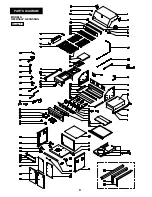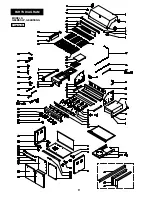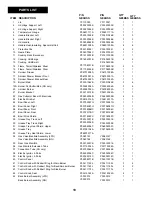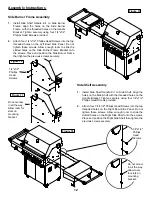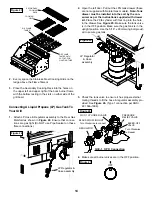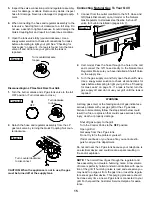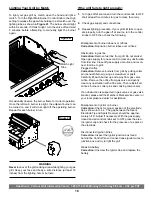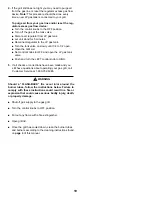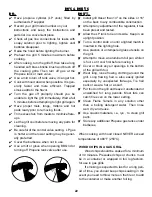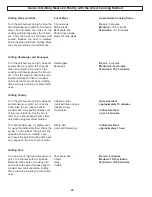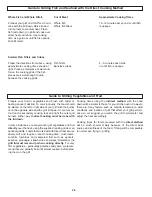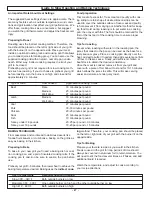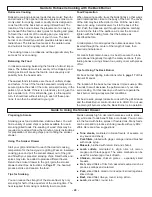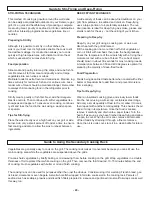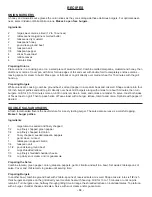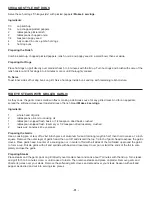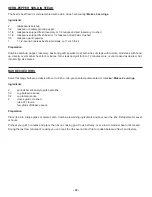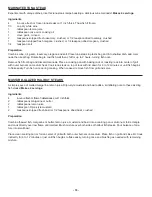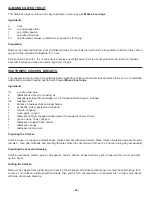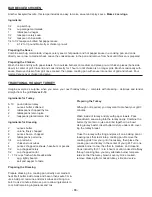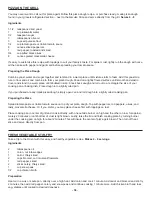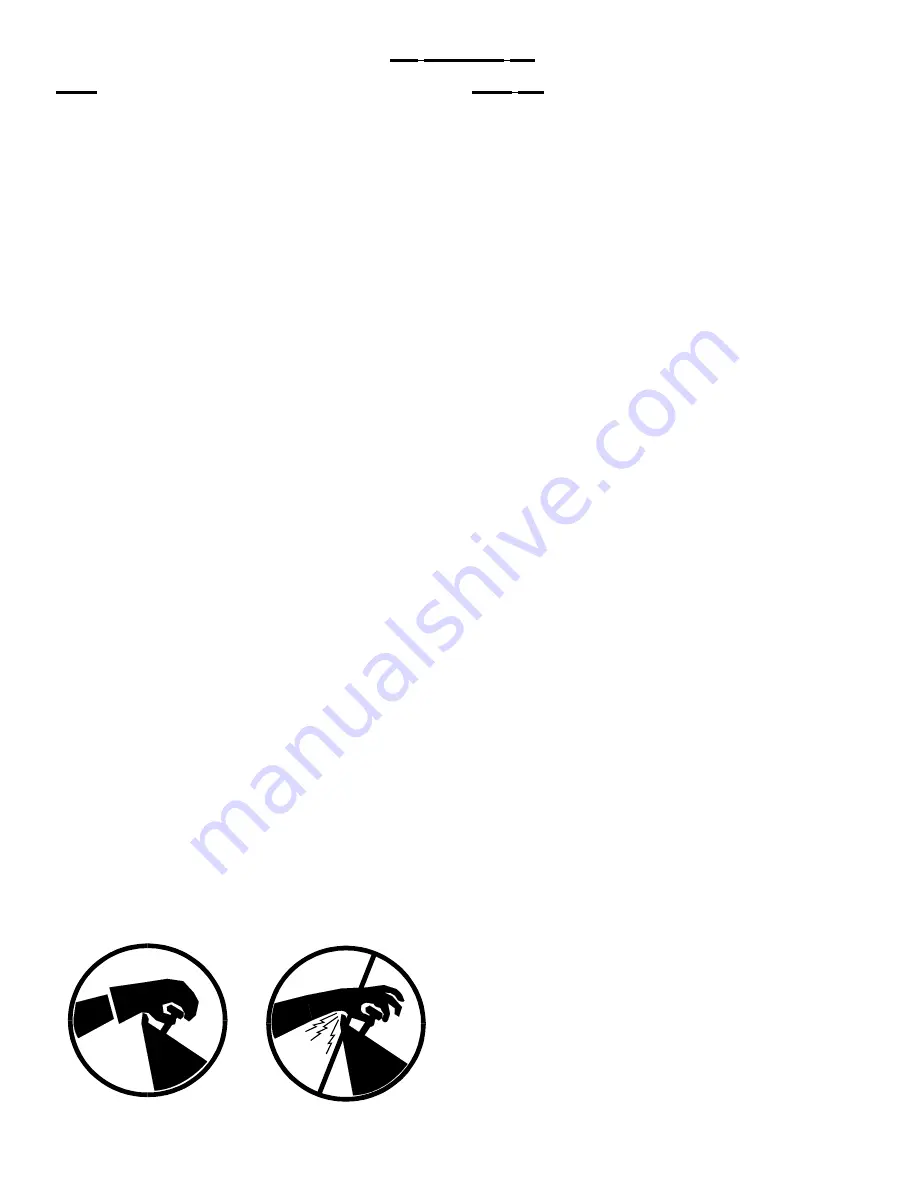
DO
’
S & DON
’
TS
DO..
Have propane cylinder (LP units) filled by
authorized LP supplier.
Record your grill model number on your
instructions and keep the instructions and
parts list in a convenient place.
Check all gas line connections for leaks with
soapy solution prior to lighting, tighten until
bubbles disappear.
Raise the hood before lighting the burner.
Preheat the grill 5 minutes maximum before
cooking.
After cooking, turn the grill off, then take a long
handled soft brass bristle brush and brush off
the cooking grills. Then turn off gas at the
Propane tank or main valve.
Use a mitt to turn off tank valve, it can get hot.
Cook with hood down when possible. It is gen-
erally faster and more efficient. Trapped
smoke adds to the flavor.
Turn the gas off promptly should you be
unable to light the grill immediately. Wait a full
5 minutes before attempting to light grill again.
Have proper tools, tongs, mittens and hot
pads ready prior to removing foods.
Trim excess fats from meats to minimize flare-
ups.
Let the grill cool before removing any parts for
cleaning.
Be careful of the control valve setting. LP gas
is hotter and the lower setting may be gener-
ally preferred.
Cover the barbecue when not in use.
Use a mitt or glove when opening BBQ lid or
turning off Propane tank valve after use.
DON
’
T..
Install grill closer than 14" on the sides or 16"
on the back to any combustible construction.
Attempt any adjustment of the regulator, it has
been preset and tested.
Allow the LP tank to lie on its side. Keep in an
upright position.
Turn a control knob on until a lighted match is
inserted in the lighting hole.
Use plastics or untempered glass utensils on
the grill.
Attempt to move an aluminum foil pan while it
is hot. Let it cool first before moving it.
Cover or block any air openings in the bottom
of the grill with foil.
Wear long, loose flowing clothing around the
grill. Long flowing hair is also easily ignited
especially by unexpected flare-ups. Tie hair
back or wear a hat or a scarf.
Put food on the grill and leave it unattended or
unwatched for long periods. Most fats can
catch fire even on the lower setting.
Clean Flame Tamers in any solution other
than a boiling detergent water. Then rinse
well, dry and reuse.
Use caustic materials, i.e., lye , to clean grill
parts.
Store any additional Propane gas tanks under
barbecue.
When cooking with hood closed NEVER exceed
temperatures of 480°F (250°C).
WOOD CHIPS IN A GAS GRILL
Wood chips should be soaked for a minimum
of 30 minutes. Presoaked chips or chunks must
be in a container or wrapped in foil, log fashion,
for use in gas grills.
If smoking is expected to last for a long peri-
od of time, you should keep chips soaking in the
event you need to throw more on the fire or to add
to the container or make another foil log.
22

